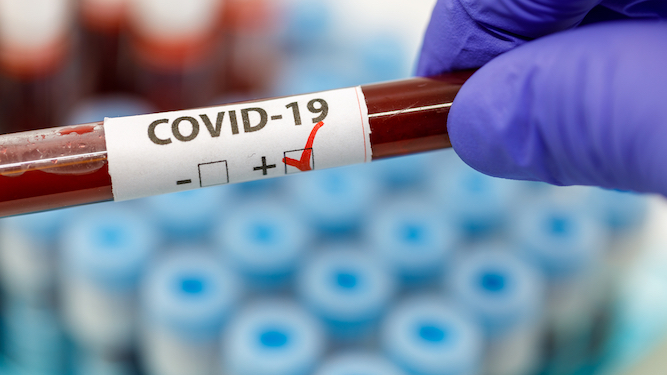
-SAYS DISCOVERY OF POSITIVE CASES IN NANDED TRASHES OPPOSITION CLAIMS ON PILGRIMS RETURNING TO PUNJAB
-PUNJAB CABINET DECIDES ON AMENDMENTS TO ALLOW PAROLE EXTENSION
Chandigarh, May 2: Punjab Chief Minister Captain Amarinder Singh on Saturday asked the Health Department to ramp up the RT-PCR Covid testing facilities in the state to 6000 a day by the May 15, instead of the targeted 5,800 a day by May end, while directing it to conduct its own tests on all returnees instead of going by the tests done in other states.
अब कोरोना ने खेला तीसरा दांव, ना खाँसी ना बुखार, ना दाग और ना दर्द…
Pointing to the large number of returnees had now tested positive, the Chief Minister said it was clear that Punjab could not rely on the tests conducted on its people stranded in other places by those respective states.
बॉलीवुड के वह सितारे जो माह अप्रैल में हुए हमसे जुदा
Referring to the fact that several staffers at the Nanded gurdwara itself had now tested positive, the Chief Minister said with this the Akali claim, that there were no positive cases in Nanded and the pilgrims had got infected on the way back or on reaching Punjab, had been trashed. He once again asked the Opposition to stop indulging in petty politicking over such a grave issue.
तेरे दर्द से दिल आबाद रहा कुछ भूल गए कुछ याद रहा last video of #RishiKapoor from hospital
This was a crucial time in the state’s fight against Covid, the Chief Minister said during a VC meeting with the Council of Ministers, which took a series of decisions to scale up the state government’s Corona battle. Directing the Health Department to come out with a plan to advance its schedule for increasing the testing capacity, the Chief Minister stressed the need to be prepared for the worst.
Captain Amarinder said he had already asked the Chief Secretary to coordinate with the central government to scale up the testing capacity to 20000 a day, to cope with the influx of migrants and others expected to return to the state over the next few weeks in the wake of the new directives of the Government of India. The rapid testing would also need to be scaled exponentially, to at least 2 lakh, once it resumes, the Chief Secretary said.
The Chief Minister said he had also asked Baba Farid University Vice Chancellor to explore the feasibility of setting up a testing facility in Jalandhar, for which the government was ready to sanction an immediate grant of Rs 1 crore.
The Chief Minister’s directions on augmenting the testing facilities came two days after he ordered strict quarantining of those returning to Punjab from other states, and in the wake of test reports of 292 people returning from Maharashtra showing positive. In response to a suggestion by some of the Ministers, the Chief Minister agreed to examine their proposal for home quarantine of the returnees in coordination with the village Sarpanches and Panchayats.
Captain Amarinder told the Cabinet that he had deputed individual officers to coordinate with each state for facilitating the return of Punjabis.
Health Minister Balbir Singh Sidhu assured the Chief Minister that all pending testing reports would be cleared in the next day or two, to ensure that there is no delay in identifying and addressing positive cases. He said arrangements for increasing testing by roping in a private lab had also been finalized and 2000 samples from across the state had been sent to them today.
*Cabinet approves parole extension*
In view of the unprecedented situation prevailing in the state, the Cabinet approved extension of parole period beyond 16 weeks during epidemics and disasters, for those sentenced to 7 years or less. The Cabinet okayed suitable amendments to The Punjab Good Conduct Prisoners Act 1962, in accordance with the Supreme Court suggestion on longer paroles in the current extreme circumstances.
*Outsourced appointments cleared for GMCs*
To further ramp up the state’s testing facility and medical preparedness in the Covid battle, the Council of Ministers cleared various appointments, on outsourcing basis, for critical posts at the Government Medical Colleges in Patiala, Amritsar and Faridkot. The appointments, already approved by the Finance Department for six months, will enable the government medical colleges to appoint vital staff in the viral testing laboratories, isolation wards etc, to enable 24X7 functioning, said an official spokesperson.
The Committee headed by Dr Raj Bahadur will decide and finalize the appointments for the posts of Specialist Doctors, Nurses, Ward Attendants, Technicians, Lab Attendants, apart from Directors and other.
The Cabinet was informed that from the initial 3 testing facilities, the number of such centres in Punjab had gone up to 7, with the Dr Lal Path Labs also now allowed to conduct tests beginning today. The lab collected 2000 samples on the first day, from across the state.
To further increase the testing capacity in the State, a proposal has been sent to GOI to set up 4 new labs in the District Hospitals at Barnala, Roopnagar, Ludhiana and Hoshiarpur. Additionally, a proposal to procure 15 TruNaat machines has been moved. State is also considering to start CBNaat testing in Patiala and Faridkot.
Cabinet Minister Vijay Inder Singla suggested allowing non-NABL labs to conduct Covid tests, pointing out that the state had 12 such labs, equipped with similar machines as needed for testing, and the ICMR had also allowed these labs to be used after due inspection.
*Ex-facto approval for 4300 GoGs*
In another decision, the Cabinet accorded ex-post facto approval to the appointment of 4300 Guardians of Governance (GOGS). The GoGs, part of the Chief Minister’s flagship scheme to gainfully employ ex-servicemen, have emerged as a powerful tool for the state government in the battle against Covid.
*Transfer of teachers from border areas*
The Cabinet also agreed to amend the transfer policy of the School Education Department to allow teachers seeking transfer after 18 months of posting in the border areas, instead of the earlier 3 years, once new recruitments are completed. It also gave ex-facto approval to the exclusion of principal and headmasters from the transfer policy.



